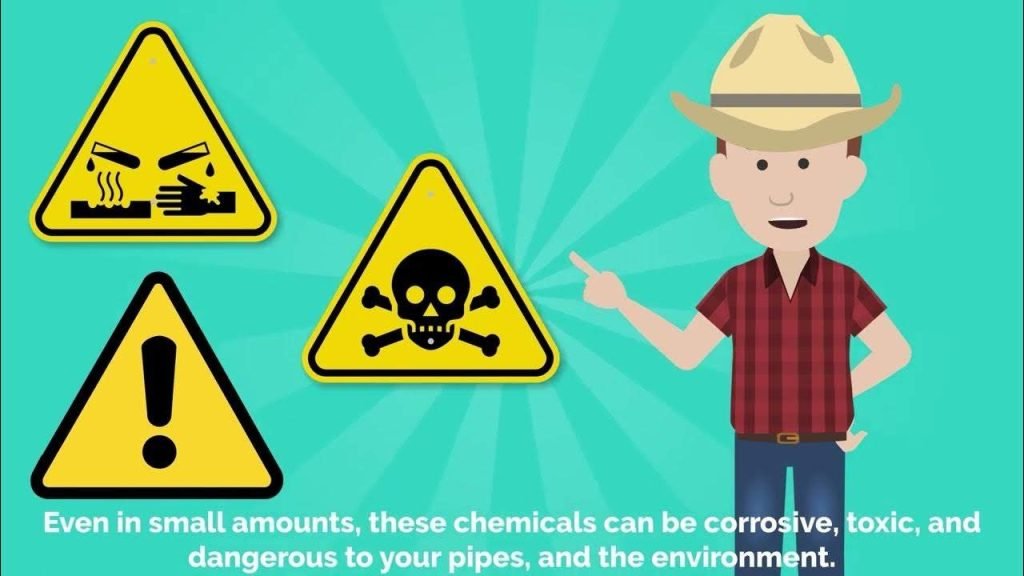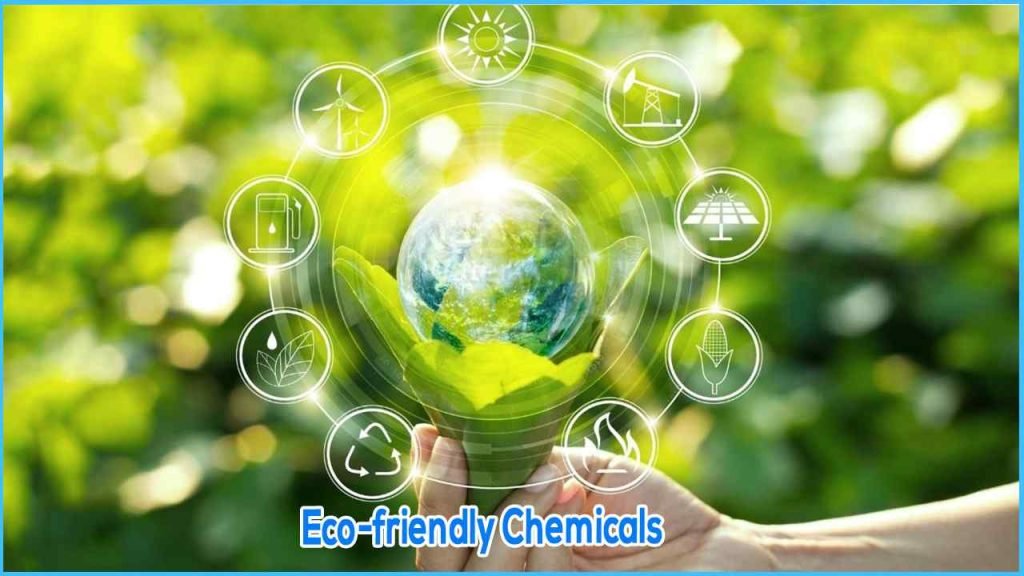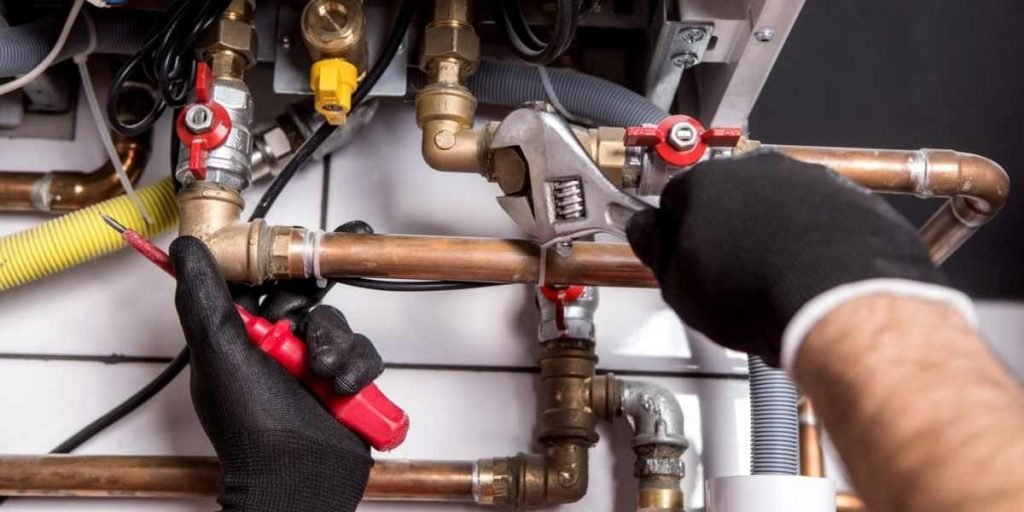Hey there, savvy homeowners! Ever wondered about the unsung heroes of your household – the plumbing pipes? Well, they’re working hard behind the scenes, and how you handle household chemicals can either be a love letter or a nightmare for them. In this guide and with A.C.E. Plumbing And Home Services LLC, we’re diving into the art of properly disposing of household chemicals to keep your plumbing in tip-top shape. Pouring chemicals down the drain might seem like a quick fix, but trust me, it’s a one-way ticket to plumbing problems.

So, let’s chat about some easy, eco-friendly ways to bid farewell to those chemical buddies without causing any plumbing heartaches. From recycling to utilizing proper disposal facilities and considering eco-friendly plumbing services, we’ll explore methods that not only protect your plumbing but also safeguard the environment. Ready to show your pipes some love and do your part for Mother Nature? Let’s get started!
Understanding the Impact of Household Chemicals on Plumbing
Handling a plumbing emergency at night requires immediate action to prevent further damage. In situations like this, it’s vital to locate the main water shut-off valve and turn it off to stop the flow of water. This helps mitigate flooding and water damage until a professional plumber can assess and address the issue. Additionally, having basic plumbing tools such as a plunger, pipe wrench, and plumber’s tape on hand can be invaluable for temporary repairs or containment. It’s also wise to have the contact information of a reliable emergency plumber saved for quick access. By taking swift and decisive action during a plumbing emergency at night, homeowners can minimize damage and ensure a swift resolution.
Identifying Common Household Chemicals Hazardous to Plumbing
Avoiding DIY plumbing mistakes is crucial for protecting plumbing systems from damage caused by certain household chemicals. Improper use of harsh drain cleaners containing chemicals like sulfuric acid or sodium hydroxide can corrode pipes and lead to leaks. Similarly, using bleach or other chlorine-based cleaners can weaken the integrity of metal pipes over time. Additionally, pouring cooking oils, grease, and fats down drains can cause stubborn clogs that impede water flow. By recognizing the potential hazards of these chemicals and avoiding DIY plumbing mistakes, homeowners can maintain the longevity of their plumbing systems and prevent costly repairs.
Eco-Friendly Alternatives to Harsh Chemicals
Incorporating eco-friendly alternatives to harsh household chemicals is not only beneficial for the environment but also for plumbing health. Natural substances like vinegar, baking soda, and lemon juice can effectively clean drains and surfaces without causing damage to plumbing systems. Additionally, enzyme-based drain cleaners offer a safe and biodegradable solution for breaking down organic matter and preventing clogs. Switching to eco-friendly cleaning products reduces the risk of chemical damage to pipes and minimizes the environmental impact of household waste. By embracing these alternatives, homeowners can maintain clean and functional plumbing systems while reducing their carbon footprint.

Proper Storage of Household Chemicals to Prevent Plumbing Damage
Proper storage of household chemicals is essential for preventing accidental spills and minimizing the risk of plumbing damage. Store chemicals in their original containers with secure lids to prevent leaks or spills. Keep them out of reach of children and pets in a designated storage area away from plumbing fixtures. Avoid storing chemicals above sinks or drains to prevent accidental exposure to water. Additionally, ensure adequate ventilation in storage areas to prevent the buildup of fumes that could corrode plumbing materials. By following proper storage practices, homeowners can minimize the risk of chemical spills and protect their plumbing from damage.
Recycling and Disposal Options for Household Chemicals
Responsibly disposing of household chemicals is crucial for protecting the environment and preventing pollution of waterways. Many communities offer recycling programs or hazardous waste collection events where residents can safely dispose of unwanted chemicals. Research local recycling and disposal options to determine the best method for disposing of specific household chemicals. Never pour chemicals down the drain or flush them down the toilet, as this can contaminate water sources and harm aquatic ecosystems. By participating in recycling and disposal programs, homeowners can ensure that household chemicals are safely disposed of and do not pose a threat to the environment.
Importance of Professional Plumbing Services for Chemical-related Issues
In cases where household chemicals have caused damage to plumbing systems, seeking professional plumbing services is essential for effective repair and restoration. Trained plumbers have the expertise and equipment to assess the extent of chemical damage and implement appropriate solutions. Whether it’s repairing corroded pipes, clearing stubborn clogs, or replacing damaged fixtures, professional plumbers can address chemical-related issues safely and efficiently. Additionally, plumbers can provide valuable advice on preventive measures to protect plumbing from future chemical damage. By entrusting chemical-related plumbing issues to professionals, homeowners can ensure thorough repairs and maintain the integrity of their plumbing systems.
DIY Methods for Safely Cleaning Drains and Pipes
Implementing DIY methods for safely cleaning drains and pipes is a proactive way for homeowners to maintain their plumbing systems and prevent clogs. Simple remedies like using a mixture of baking soda and vinegar or hot water and dish soap can effectively break down grease and organic matter in drains. Mechanical methods such as using a plunger or plumbing snake can dislodge stubborn clogs without the need for harsh chemicals. Regularly flushing drains with hot water and periodically cleaning drain covers can also help prevent buildup and maintain proper drainage. By incorporating these DIY cleaning methods into their routine maintenance, homeowners can keep their plumbing systems running smoothly and avoid costly repairs.
Preventive Maintenance Tips to Protect Plumbing from Chemical Damage
Taking preventive maintenance measures is key to protecting plumbing systems from chemical damage and prolonging their lifespan. Avoid pouring harsh chemicals down drains or toilets, as this can corrode pipes and cause leaks. Use eco-friendly cleaning products whenever possible to minimize the risk of chemical damage. Regularly inspect plumbing fixtures for signs of corrosion or leaks and address any issues promptly. Consider installing drain filters or screens to prevent debris and hair from accumulating in drains and causing clogs. Additionally, scheduling routine professional inspections and maintenance checks can help identify potential problems early and prevent costly repairs down the line.

Educating Household Members on Safe Chemical Usage
Educating household members on safe chemical usage is essential for preventing accidents and minimizing the risk of plumbing damage. Clearly label chemical containers and provide instructions for proper use and disposal. Teach children about the dangers of household chemicals and the importance of keeping them out of reach. Encourage responsible use of cleaning products and emphasize the use of eco-friendly alternatives whenever possible. By fostering a culture of safety and awareness within the household, homeowners can reduce the likelihood of chemical-related incidents and protect their plumbing systems from damage.
Collaboration with Local Environmental Agencies for Responsible Disposal
Collaborating with local environmental agencies for responsible disposal of household chemicals is essential for protecting the environment and public health. Research local recycling programs, hazardous waste collection events, or drop-off locations where residents can safely dispose of unwanted chemicals. Follow guidelines provided by environmental agencies for proper disposal of specific chemicals, and never pour them down drains or toilets. By working together with local authorities and community organizations, homeowners can ensure that household chemicals are disposed of responsibly and do not pose a threat to the environment.
Monitoring and Assessing Plumbing Health Regularly to Detect Chemical Damage
Regular monitoring and assessment of plumbing health are crucial for detecting chemical damage early and preventing costly repairs. Keep an eye out for signs of corrosion, leaks, or unusual odors, which may indicate chemical damage to plumbing systems. Periodically inspect exposed pipes, fixtures, and drains for signs of wear or deterioration. Consider scheduling routine professional inspections to assess the condition of plumbing systems and identify potential issues before they escalate. By staying vigilant and proactive in monitoring plumbing health, homeowners can address chemical damage promptly and preserve the integrity of their plumbing systems for years to come.
Conclusion
In conclusion, responsibly managing household chemicals is crucial for preserving the integrity of plumbing systems and safeguarding the environment. By understanding the impact of common household chemicals on plumbing, homeowners can adopt eco-friendly alternatives, implement proper storage practices, and utilize recycling and disposal options to minimize risks. Seeking professional plumbing services for chemical-related issues ensures effective repairs and preventive measures. Incorporating DIY cleaning methods and preventive maintenance tips helps homeowners proactively protect their plumbing from chemical damage. Educating household members on safe chemical usage and collaborating with local environmental agencies for responsible disposal further contribute to a sustainable approach. Regular monitoring and assessment of plumbing health allow for early detection of chemical damage and timely interventions.
FAQs
Can I pour household chemicals down the drain? No, pouring chemicals down the drain can corrode pipes and harm the environment. It’s best to use eco-friendly alternatives or dispose of them properly.
2. How do I know if household chemicals have damaged my plumbing? Signs of chemical damage include corrosion, leaks, or unusual odors in your plumbing system. Regular inspections can help detect issues early.
3. What should I do with unused household chemicals? Unused household chemicals should be disposed of responsibly through recycling programs or hazardous waste collection events to prevent environmental contamination.
4. Can I use DIY methods to clean my drains safely? Yes, DIY methods like using baking soda and vinegar or a plumbing snake can effectively clean drains without harsh chemicals, protecting your plumbing.
5. How can I prevent chemical damage to my plumbing? Preventive measures include using eco-friendly cleaning products, proper storage of chemicals, and regular professional inspections to detect and address issues early.
